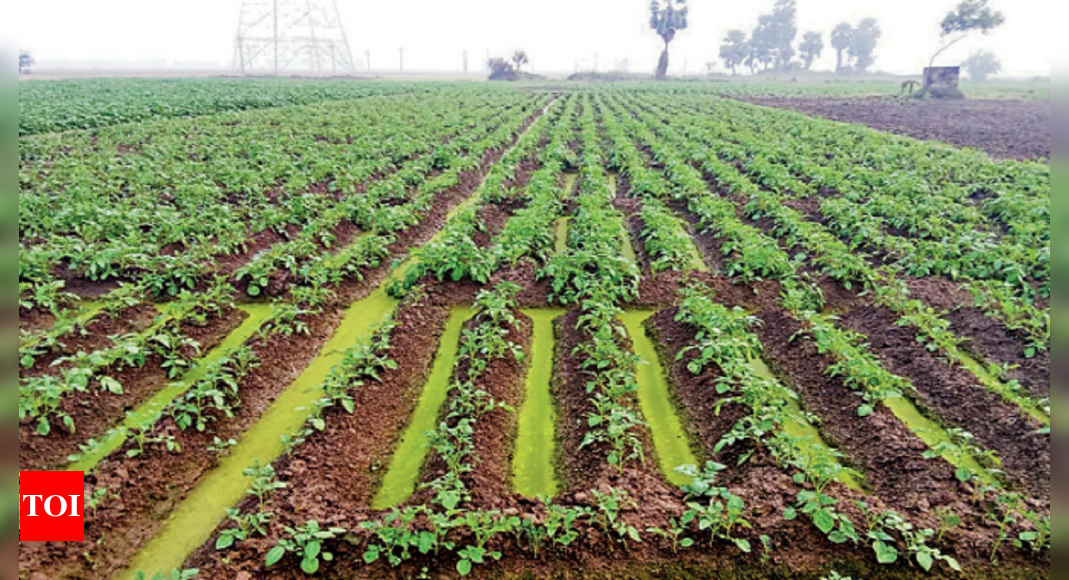Fresh rainfall on Jan 17, 18, and 19 has dealt a blow to Bengal’s agricultural landscape, with reports of extensive crop damage coming in from districts. The repercussions are feared to have an impact on the retail market in Kolkata. Potato, one of Bengal’s two main cash crops, has faced a double blow this season. One spell of late-Dec rain led to extensive damage to potato production, prompting farmers to replant seeds. But the recent rainfall worsened the situation, as the calamity struck just as the crop had started sprouting. The twin onslaughts have raised concerns that potato production this year may be at least 30% lower than that in previous years, potentially driving up retail prices. Stagnant rainwater has damaged potato crop in Hooghly, East Burdwan and Bankura. Government officials, including rural development minister Pradip Majumdar and his deputy, Becharam Manna, said they were assessing the damage. They pointed out that while the situation was indeed challenging, farmers could overcome the difficulties. But Srikanta Das, a farmer from East Burdwan, highlighted the challenges faced by those who had to resow potato seeds. The cost of cultivating one bigha of potatoes has shot up to Rs 25,000-Rs 30,000, with fears of losses in yields. Various other Rabi crops, including green gram, red lentil, Bengal gram, lima beans, and onions, were also damaged in the rain and waterlogging. Farmers are grappling with the situation, with many facing financial setbacks and uncertainty about harvest. In Memari II of East Burdwan, farmers are struggling to salvage the potato crop, striving to drain water from fields. While the survival of potato plants hangs in balance, agriculture officials in East Burdwan claimed the situation was under control, with water receding. The fickle weather has not spared vegetables either. Green larvae are feeding on cauliflower in Tarakeswar due to the current rain and fog, causing significant financial losses to farmers, such as Krittibas Majhi. Others, like arhar, beans and ladies’ fingers, have also failed, affecting the livelihood of many families. The rain has also impacted paddy farmers awaiting government procurement of their harvest. Asish Pakhi, a farmer from Pursura, said his paddy stock he had left in the open was damaged. The delay in procurement left farmers vulnerable to exploitation by agents.
Winter Rain Deals Blow to Crops, Potato Hit Hardest











